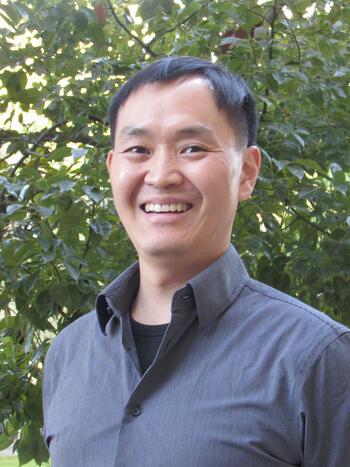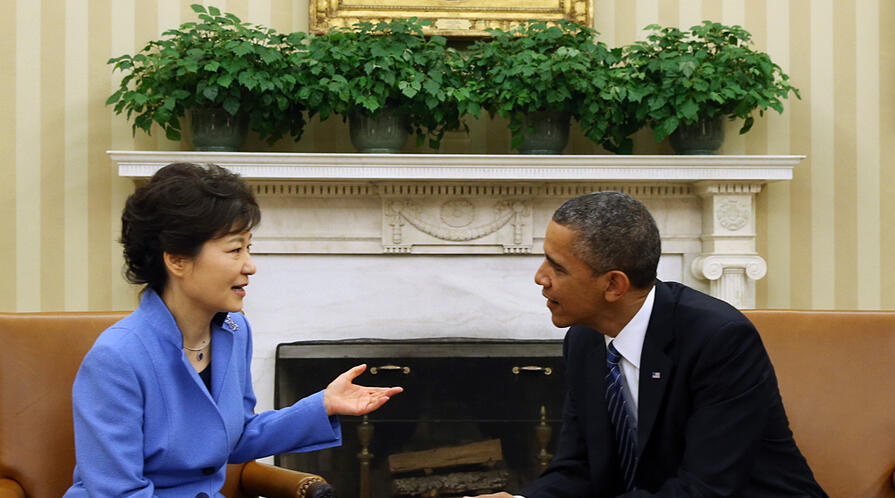Opinion: Next Korea, Next Generation
Researchers in the Korea Program regularly contribute to Korean media on the Korean affairs ranging from education and economics to politics and North Korea nuclear issues. The articles are in Korean language.
Nationalist Populism in South Korea (Gi-Wook Shin, August 18, 2019)
The Ambiguous Boundary Between Korean Wave and the Anti-Korean Sentiment (Joyce Lee, May 2, 2019)
Restoring the Dignity of South Korea (Gi-Wook Shin, April 18, 2019)
Happiness and Productivity (Yong Suk Lee, March 21, 2019)
Softness Overcomes Hardness (Joyce Lee, March 6, 2019)
What should the Hanoi Declaration lay out? (Gi-Wook Shin, February 20, 2019)
What Would an Aged Society Look Like? (Yong Suk Lee, January 23, 2019)
Confront the lure of populism or risk economic failures and the coming of a far-right extremist regime (Gi-Wook Shin, January 17, 2019)
Only a drastic measure towards denuclearization can resolve the current stalemate with North Korea (Gi-Wook Shin, interview with Korea Times, January 10, 2019)
Looking After Myself (Joyce Lee, January 9, 2019)
2018, The Moon Jae-In Government's Progress Report (Gi-Wook Shin, December 27, 2018)
Rethinking North Korean Economy? (Yong Suk Lee, November 29, 2018)
The Dark Side of the Korean Culture of Hierarchy (Joyce Lee, November 14, 2018)
Trump's Second Half (Gi-Wook Shin, November 7, 2018)
How Parents Can Help their Children with Career Planning (Yong Suk Lee, October 17, 2018)
Anticipation and Concerns Mount Ahead of the 3rd Inter-Korean Summit (Joyce Lee, September 19, 2018)
Spring on the Korean Peninsula Needs to be hard fought (Gi-Wook Shin, September 5, 2018)
Should we encourage kids to learn coding? (Yong Suk Lee, August 6, 2018)
Some Thoughts on the Korean Value of Saving Face (Joyce Lee, July 16, 2018)
Koreans abroad can play important roles in achieving peace on the Korean Peninsula (Gi-Wook Shin, July 2, 2018)
Withdrawal of US troops from South Korea now becomes an option (Gi-Wook Shin, June 20, 2018)
Trump in Face-Saving Action for Kim (Joyce Lee, June 18, 2018)
South Korea and the U.S. Differ on Priorities for North Korea Policy (Gi-Wook Shin, May 14, 2018)
Is CVID Possible? (Gi-Wook Shin, May 7, 2018)
CVID Faces Challenges (Gi-Wook Shin, May 3, 2018)
The April 27 Korea Summit and the Lingering Question of CVID+α (Gi-Wook Shin, April 30, 2018)
Choices for Your Happiness (Joyce Lee, April 23, 2018)
The Ambiguity of the Moon Government's Goal for the Inter-Korean Summit (Gi-Wook Shin, April 2, 2018)
Korea as a Pacemaker (Gi-Wook Shin, March 13, 2018)
MeToo Movement Should Create Lasting Social Change (Gi-Wook Shin, March 12, 2018)
What's Wrong with Being a Nobody? (Joyce Lee, February 26, 2018)
It's Time to Move Beyond the Political Deadlock of Comfort Women Issue (Gi-Wook Shin, January 15, 2018)
Can the Government Rouse Young Koreans from Their Dreams of Childless Comfort? (Joyce Lee, January 3, 2018)
A Grand Bargain between the US and China Seems More Likely than Ever (Yong Suk Lee, December 25, 2017)
Korea No Longer a Country of Koreans (Rennie Moon, December 11, 2017)
Moon Administration's Diplomatic and Securtiy Strategies (Gi-Wook Shin, November 27, 2017)
Making Little Mr. and Ms. Perfects, But for Whose Sake and at What Cost? (Joyce Lee, November 6, 2017)
Identifying Korea as a Developed Country (Joon Nak Choi, October 30, 2017)
Superficial Korea (Gi-Wook Shin, September 26, 2017)
What Comes After the War of Words Between Trump and Kim Jong-un (Gi-Wook Shin, September 25, 2017)
In the Midst of Rising Fears of War (Joyce Lee, September 12, 2017)
Broken English as the global language (Rennie Moon, August 28, 2017)
'Polifessors' of Moon administration (Gi-Wook Shin, July 24, 2017)
In Anticipation of the Era of Korean Studies (Joyce Lee, July 17, 2017)
Technological Change: Why Korea needs a longer-term perspective on job creation (Yong Suk Lee, June 27, 2017)
Global network of Koreans abroad (Gi-Wook Shin, June 6, 2017)
First summit meeting, not to hurry (Gi-Wook Shin, May 22, 2017)
Korean Americans' love for Korea (Rennie Moon, April 24, 2017)
Trump's anti-immigration stance to be an opportunity for Korea (Gi-Wook Shin, February 27, 2017)
A Labor market by the young, and for the young (Yong Suk Lee, January 30, 2017)
If Korean universities are to succeed with internationalization (Rennie Moon, November 21, 2016)
US presidential election and Korea (Gi-Wook Shin, October 24, 2016)
Political expediency should not block technology innovation (Joon Nak Choi, September 12, 2016)
Strategic policy on inter-Korean relations is essential (Gi-Wook Shin, August 1, 2016)
Is Korea ready to embrace risk and failure? (Yong Suk Lee, June 20, 2016)
Can Pankyo become Silicon Valley in Korea? (Gi-Wook Shin, May 9, 2016)




 Mark Lippert expressed optimism about the U.S.-ROK alliance at a Stanford talk on Oct. 19, 2015.
Mark Lippert expressed optimism about the U.S.-ROK alliance at a Stanford talk on Oct. 19, 2015.
